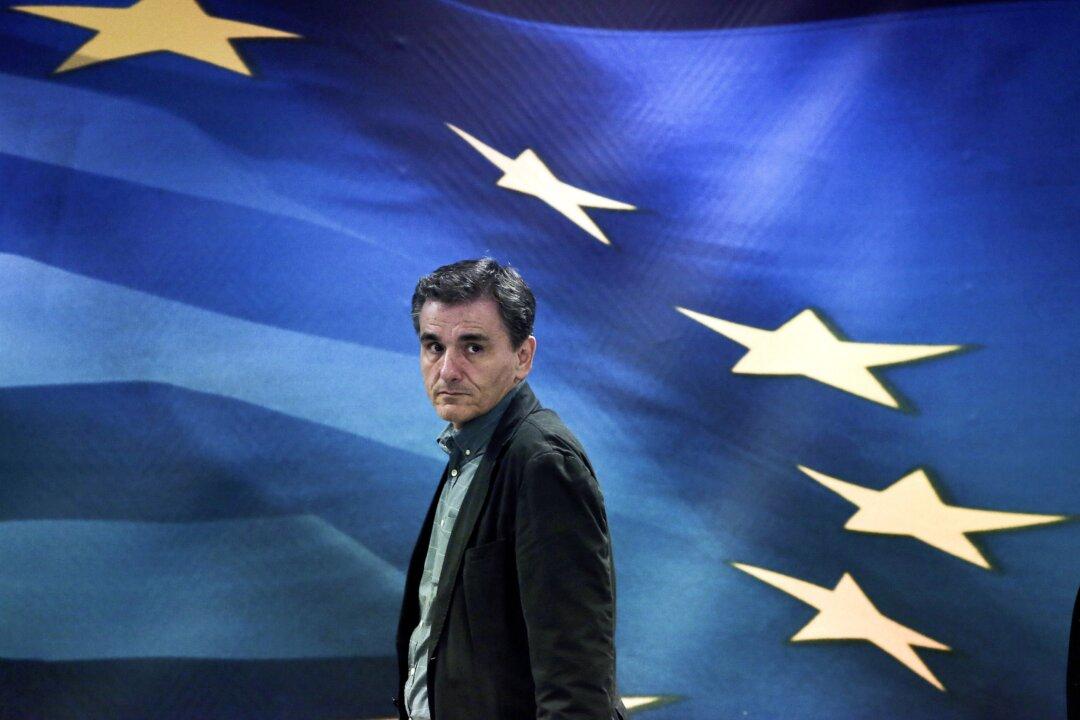ATHENS, Greece—On his first full day as Greek finance minister, Euclid Tsakalotos faced 18 angry colleagues in a room in Brussels.
His eurozone counterparts were livid after the left-wing Greek government called and won an austerity referendum that rejected their proposals for a rescue deal. Wearing a crumpled cotton suit, no tie and a gentle smile, Tsakalotos walked into the conference room on Tuesday carrying a notepad of hotel stationery with hand-written discussion points — easily readable by zoom lens — that included the entry “no triumphalism.”
Such mild manners and diplomatic tact have helped the 55-year-old restore negotiations between Greece and its creditors after they had been strained to breaking point by his larger-than-life, confrontational predecessor, Yanis Varoufakis.





